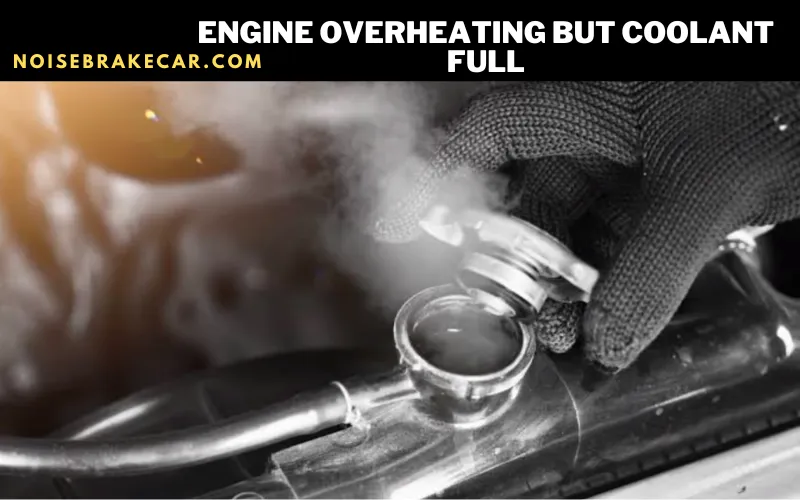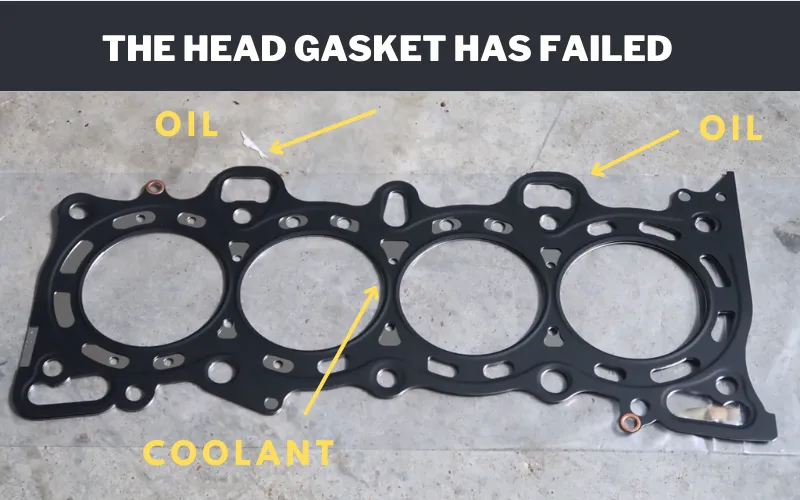An engine overheating problem is often caused by a coolant leak. On the other hand, there are situation where your car may overheat without leaking coolant after you have parked. This raises the question,
Why is your coolant full but your engine overheating?
A car overheating without leaks could be caused by a blocked radiator, a broken thermostat, air trapped in the cooling system preventing coolant flow, a bad water pump, malfunctioning cooling fans, plugged hoses, or a broken serpentine belt.
Read to this article more details on why your engine is overheating without leaking. We have also covered how to find leaks and fix overheating problems before they harm engines.
Engine Overheating but Coolant Full What are the Cause
Here are the main Reasons Explain read more information.
- The Radiator is Blocked
- Thermostat is Broken
- The Water Pump has failed
- The Heater Core is Blocked
- Cooling Fans aren’t working properly
- The Head Gasket Has Failed
1) The Radiator is Blocked
Blocked radiator is the primary cause of engine overheating but coolant being full. Heat is taken in by the coolant and then dispersed through the radiator. If something is stuck in it or if it is damaged the coolant might not be able to pass through.

The radiator is incredibly easy to visually inspect due to its location near the front of the car. Clear away any debris that you come across. Regretfully, your only option may be to replace it if is damage.
2) Thermostat is Broken
The amount of coolant that runs through the cooling system is managed by the thermostat. If it gets stuck for any reason, it won’t be able to do correctly. This part could lead to overheating of your engine if it malfunctions.
More Information: 7 Reasons Hard Starting When Engine is Hot (How to Fix)
3) The Water Pump Has Failed
Coolant from the radiator is pumped throughout the rest of the cooling system by the water pump. Naturally, if your water pump gives out, your engine won’t get enough coolant, which will lead to overheating.
4) The Heater Core is Blocked
When you turn on the heater, hot air is blasted by the heater core, which is responsible for keeping your cabin warm is cold weather. Your car will overheat if the coolant is broken or won’t flow in a cold climate.
5) Cooling Fans aren’t Working Properly
Your cooling system’s fans push air over your radiator, assisting in the coolant’s reduction. However, insufficient airflow is the result of a malfunctioning fan. Electric and mechanical cooling fans are the two categories into which they fall.
Read More: Engine Oil Sludge Symptoms- How to Remove & Prevent?
Furthermore, a serpentine belt, which is frequently used to drive mechanical types, is easily identifiable when it breaks. The electric fans in your car should turn on when you turn it on or when the engine starts to warm up. Keep in mind that malfunctioning fans are more likely to result in overheating when your car is idling because the airflow created while you drive is sufficient to reduce coolant temperature in your radiator without the need for fans.
6) The Head Gasket Has Failed
We were a little uncomfortable suggesting that the head gasket might have blown. In case you were unaware, a head gasket is a seal that connects the cylinder head and engine block. An overheated engine could hasten the wear and tear on this seal. Coolant may leak out as it moves between the two when this happens.

The part is not expansive in and of itself, but getting to it is. You have yourself a costly fix when you take into account that auto shops typically charge between 50 and $100 per hour. Luckily, this ought to be the last cautionary signal you see before realizing your engine is overheating but the coolant is still full. If it reaches this stage, a costly repair is likely ahead.
How to Fix The issue of Engine Overheating but Coolant Full?
Your car’s overheating is a serious issue, and we advise against driving it at this time to avoid damaging the engine. Here’s what to do when the problems appear. Leave your car in a safe place to cool down. Check the coolant level once it has cooled. You probably have a tiny leave if the levels are low. To find out if there is a leak and where is coming from, test the coolant pressure in your car next.
Go to the reasons listed above and make sure they are free pf errors. Start with the water, pump, radiator, radiator hoses, thermostat and Colling fans. Try an elimination process if you’re in the mod to replace any parts on your car. The thermostat should be changed.
Next, move on to the water pump and radiator. Make sure you replace the old coolant with fresh by completely draining it. Coolant should generally be changed on a regular basis, and flushing out your entire system while maintaining or repairing it is a great chance to do so. We advise bringing your car to a reliable mechanic who can identify and fix the overheating issue if you are unable to resolve it on your own.